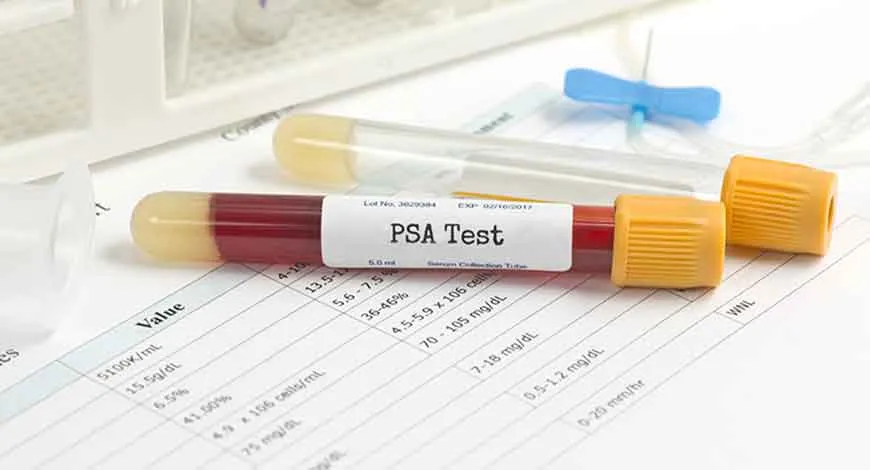
UK’s EDX Medical Develops New ‘Super Test’ for Prostate Cancer
Scientists in Cambridge have created a groundbreaking new ‘super test’ for prostate cancer, aiming to transform the way the disease is screened and diagnosed. This innovative test is designed to improve the accuracy of prostate cancer detection and pave the way for more personalized treatment options for patients. The development promises to enhance early diagnosis, allowing for more targeted and effective treatment strategies.
A groundbreaking ‘super test’ for prostate cancer has been developed by scientists in Cambridge, offering a revolutionary approach to diagnosing the disease. The new test, created by EDX Medical Group plc, aims to improve prostate cancer screening, diagnosis, and accelerate personalized treatment. This innovative tool can not only detect the presence or absence of cancerous cells, but also provide crucial insights into the cancer’s stage, aggression, and genetic risks in patients.

The test utilizes the most comprehensive combination of clinically validated prostate biomarkers currently available, measured in both blood and urine samples. These biomarkers are then analyzed using a proprietary AI-driven algorithm, which identifies early signs of prostate cancer and critical features that can guide treatment decisions. The advanced AI algorithm is designed to enhance the accuracy of diagnosis, helping doctors choose the most effective treatment options for each individual patient.
The Growing Need for Prostate Cancer Diagnosis
Prostate cancer affects a significant number of men worldwide. In the UK alone, 55,000 new cases are diagnosed each year. Across the European Union, the figure exceeds 330,000, with over one million men currently undergoing treatment. Despite these high numbers, the standard screening methods—such as the prostate-specific antigen (PSA) test—are not always reliable, leading to many unnecessary procedures or missed diagnoses.
The new ‘super test’ developed by EDX Medical measures over 100 clinically validated biomarkers, surpassing current tests, which typically rely on only 20 biomarkers. By using this extensive panel of biomarkers, the test can offer an exceptionally accurate diagnosis with sensitivity and specificity levels ranging from 96-99%. These high accuracy levels are a significant improvement over traditional prostate cancer tests, which can have sensitivity rates as low as 50%.
This advanced test also provides a non-invasive approach to prostate cancer diagnosis, offering a more comfortable and convenient alternative to traditional methods like biopsies and digital rectal examinations (DREs). The non-invasive nature of the test reduces the need for costly and invasive procedures, benefiting both patients and healthcare providers by lowering treatment costs.
How the ‘Super Test’ Works
The test takes a ‘multi-omics’ approach, integrating proteomic, transcriptomic, genetic/hereditary, and epigenetic biomarkers. These biomarkers, combined with phenotypic and symptom data, are analyzed by the AI algorithm to produce a comprehensive report for doctors. The inclusion of so many biomarkers is what sets this test apart from existing screening tools, offering a more complete and precise understanding of the patient’s condition.
The biomarkers used in the test have been clinically validated through studies involving over 31,000 prostate cancer samples and more than 100,000 control samples. These findings underscore the reliability and robustness of the test, which is designed to work across an extended age range and diverse ethnic groups. The new test also stands out for its ability to identify different subtypes of prostate cancer, with particular emphasis on groups at higher risk, such as non-Caucasian men who experience higher rates of aggressive forms of the disease.
Benefits for Patients and Healthcare Providers
The development of this test marks a significant leap forward in prostate cancer diagnosis. By providing high accuracy and offering a less invasive option for screening, the test is poised to dramatically improve outcomes for men, particularly those between the ages of 45 and 70, who are at a higher risk of developing prostate cancer. The test could also reduce the need for unnecessary MRI scans, which are often used to confirm prostate cancer diagnoses, leading to cost savings for healthcare systems.
Prof. Sir Chris Evans, the founder and chief scientific officer of EDX Medical, expressed his excitement about the potential of this new test. He stated, “Every indication thus far shows it will be the most accurate and sensitive screening test available and will be transformative in tackling prostate cancer. Our integrated approach highlights the potential of combining molecular signatures to create a powerful, non-invasive diagnostic tool.”
Public figures like Rio Ferdinand, who has been an advocate for early cancer detection following personal experiences with the disease, have also expressed support for the initiative. Ferdinand noted the urgent need for better prostate cancer screening, especially in ethnic minority communities, where prostate cancer risk and severity are often higher.
About EDX Medical Group
EDX Medical Group, based in the UK, is at the forefront of developing innovative diagnostic tools for cancer and other serious diseases. Founded by Prof. Sir Chris Evans, OBE, the company specializes in translating clinical insights into practical, cost-effective solutions using advanced biological and digital technologies. Through its research and strategic partnerships, EDX Medical aims to improve the detection and characterization of diseases, ultimately leading to personalized treatments that can save lives and reduce healthcare costs.
The company’s work is transforming cancer care, making diagnosis more accurate, accessible, and less invasive, and this new prostate cancer test is a perfect example of their ongoing commitment to improving patient outcomes.




